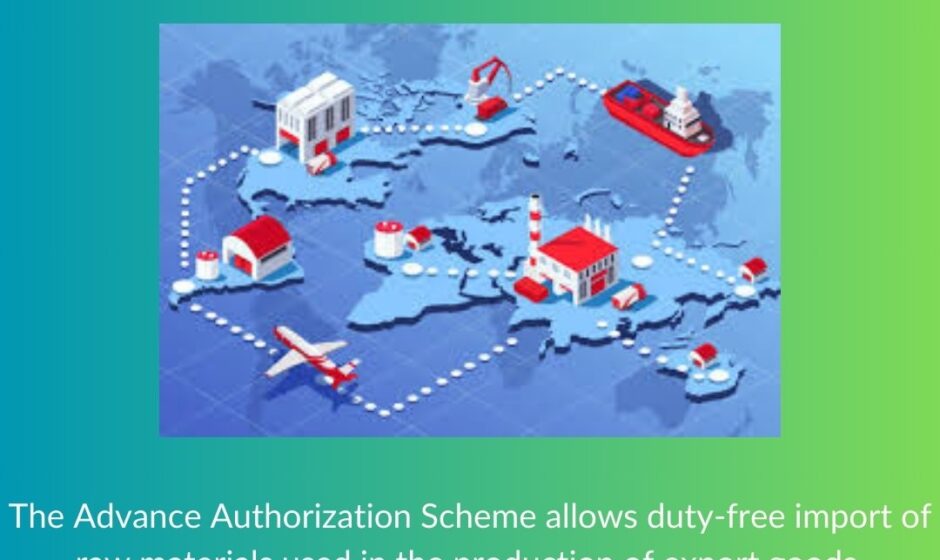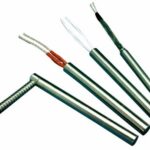The Advance Authorization Scheme is a key initiative by the Indian government aimed at promoting exports by providing duty exemptions on the import of raw materials used in the production of export goods. By facilitating duty-free imports, this scheme plays a vital role in reducing production costs and making Indian products more competitive in the international market. In this article, we will explore the features, benefits, eligibility criteria, and procedures associated with the Advance Authorization Scheme.
What is the Advance Authorization Scheme?
The Advance Authorization Scheme allows exporters to import raw materials, components, and consumables without paying customs duty. The imported materials are used to produce goods that are subsequently exported, ensuring that exporters are not burdened with additional costs associated with import duties. The scheme covers various duties, including Basic Customs Duty (BCD), Anti-Dumping Duty, Safeguard Duty, and even Integrated Goods and Services Tax (IGST).
Benefits of the Advance Authorization Scheme
The scheme offers several benefits to exporters, such as:
- Cost Reduction: By allowing duty-free import of raw materials, the scheme significantly reduces the overall cost of production, leading to more competitive pricing in the global market.
- Flexible Use of Raw Materials: The scheme provides the flexibility to source raw materials from international suppliers, improving the quality and diversity of export products.
- Deemed Export Benefits: In some cases, deemed export benefits are also available under the scheme, adding to its attractiveness for domestic suppliers who supply to export-oriented units.
Eligibility for the Advance Authorization Scheme
To be eligible for the Advance Authorization Scheme, applicants must:
- Be a manufacturer exporter or a merchant exporter tied with a supporting manufacturer.
- Undertake the export of products for which duty-free import of inputs is required.
- Adhere to the export obligation set by the Directorate General of Foreign Trade (DGFT), which mandates that the imported inputs should be used for the manufacture of export goods.
Key Features of the Scheme
- Export Obligation: The export obligation under the scheme ensures that imported materials are used for producing export items. Exporters are required to export the finished goods within a specified period from the date of import.
- Validity Period: The Advance Authorization is typically valid for 12 months from the date of issue for import purposes. Export obligation fulfillment usually has a period of 18 months, with extensions available under specific circumstances.
- Standard Input Output Norms (SION): The scheme uses SION to determine the quantity of raw materials required for manufacturing a unit of export product. This ensures that the duty-free imports are justified based on the quantity and quality of the export goods.
Procedure for Applying for the Advance Authorization Scheme
- Application Submission: Exporters must apply for the Advance Authorization Scheme through the DGFT. The application should include details about the export product, the required raw materials, and the Standard Input Output Norms (SION).
- Authorization Issuance: Upon successful evaluation of the application, the DGFT issues an Advance Authorization, allowing duty-free import of specified inputs.
- Import and Export Compliance: Exporters can then import the approved inputs duty-free. The export obligation must be fulfilled within the specified period to avoid penalties.
Challenges in Implementing the Scheme
While the Advance Authorization Scheme offers significant benefits, exporters may face some challenges, including:
- Complex Documentation: Exporters must comply with detailed documentation requirements for obtaining the authorization and fulfilling the export obligation.
- Compliance with Export Obligation: Failing to meet the export obligation within the specified period can result in penalties, including payment of customs duties and interest.
- Adherence to SION: The quantity of inputs imported duty-free should strictly align with SION guidelines, which can sometimes be restrictive.
Industries Benefiting from the Advance Authorization Scheme
Several industries can benefit from the Advance Authorization Scheme, including:
- Textile and Apparel: The scheme supports duty-free import of raw materials such as fabrics and yarns, helping the textile sector meet international quality standards.
- Engineering Goods: Machinery and equipment manufacturers can import components duty-free, reducing the cost of production.
- Chemical Industry: Chemical exporters can import raw materials used in chemical formulations, thereby lowering production expenses.
Conclusion
The Advance Authorization Scheme is a vital tool for exporters, enabling them to reduce production costs and enhance the competitiveness of their products in the global market. By offering duty exemptions on the import of raw materials, the scheme supports various industries in achieving higher profitability and expanding their international footprint. However, offering flexibility in sourcing raw materials, exporters must carefully navigate the scheme’s requirements, including the export obligation and compliance with SION, to fully reap its benefits. This scheme reduces production costs, making products more competitive in international markets.



